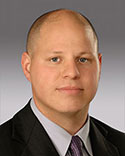
Rudolph J. DiMassa Jr.

Walter W. Gouldsbury III
There are many issues for creditors to consider during the Chapter 11 plan confirmation process. One such issue involves the dischargeability of a claim that accrues pre-petition, continues to accrue after the filing of the debtor's Chapter 11 petition, and extends beyond confirmation of the debtor's plan of reorganization. The recent decision in In re Castellino Villas, A.K.F, D.C. No. 2:12-cv-07282-JFW (9th Cir. 2016) highlights the importance to creditors of negotiating language expressly preserving a contractual right to attorney fees incurred in litigation commenced pre-petition that continues post-petition and post-confirmation.
Facts
Castellino Villas entered into a written agreement with Picerne Construction Corp., a general contractor, for Picerne to construct a 120–unit apartment complex on property owned by Castellino.
Castellino defaulted under its agreement with Picerne by failing to pay Picerne and Picerne's subcontractors for work performed on the site. Picerne recorded a mechanic's lien against the property and filed a state court complaint against Castellino to foreclose the mechanic's lien. Picerne later amended the state court complaint to include Bank of the West, Castellino's lender, as a defendant. Bank of the West held a deed of trust encumbering the subject property, and disputed Picerne's claim that Picerne's mechanic's lien was superior in priority to Bank of the West's lien on the property. Castellino also disputed the validity, priority, and amount of Picerne's lien.
The court stayed Picerne's action in order to permit arbitration between the parties pursuant to the terms of Picerne's construction contract with Castellino. That contract contained a provision for the award of attorney fees and costs to the prevailing party in the event of litigation arising from the parties' performance under the contract. An arbitration award was issued in favor of Picerne and confirmed by the state court. On the same day that the state court entered its order confirming the arbitration award, Castellino filed a petition for protection under Chapter 11 of the Bankruptcy Code.
The bankruptcy filing automatically stayed Picerne's state court action, and Picerne consequently filed a motion for relief from the stay seeking an order allowing the parties to continue litigation of the state court action. That motion was granted by the bankruptcy court.
Castellino filed its proposed plan of reorganization, and Picerne filed an objection to the confirmation of the plan. Castellino and Picerne resolved that objection by entering into a settlement agreement. The settlement agreement provided, inter alia, that should the state court determine that "Picerne's mechanic's lien was a 'valid, properly perfected and enforceable mechanic's lien against the Castellino property' and was senior to [Bank of the West's] lien, Picerne would receive specified payments from a trust account that Castellino would fund." The parties did not address Picerne's entitlement to attorney fees and costs. The settlement agreement included a mutual general release, and was approved by the bankruptcy court and incorporated into the terms of the confirmed plan.
The parties litigated the mechanic's lien claim in state court and judgment in the amount of $2.6 million was entered in favor of Picerne. Picerne then filed its motion for an award of post-confirmation fees incurred in the state court action pursuant to the attorney fees provision contained in the original agreement between the parties. The state court denied the motion without prejudice, citing that it lacked authority to adjudicate or award attorney fees pursuant to the terms of the plan confirmation order. Picerne simultaneously appealed the state court decision to the U.S. Court of Appeals in California and filed a motion in the bankruptcy court seeking an order declaring that the state court had authority to award attorney fees. The bankruptcy court denied the motion on the basis that the claim for attorney fees incurred post-confirmation was discharged upon confirmation of the plan. The district court affirmed the bankruptcy court's denial, and Picerne appealed the district court's affirmation to the U.S. Court of Appeals for the Ninth Circuit.
The Court's Analysis
The circuit court applied the "fair contemplation" test and focused its analysis on whether post-confirmation fees incurred in the state court litigation "arose" pre-petition as a contingent, unliquidated claim that was discharged upon confirmation of the plan.
Under the "fair contemplation" test, "a claim arises when a claimant can fairly or reasonably contemplate the claim's existence even if a cause of action has not yet accrued under nonbankruptcy law" (citing In re SNTL, 571 F.3d 826, 839 (9th Cir. 2009).
The court reasoned that "when parties engage in pre-petition litigation that could lead to an award of attorney fees, they may fairly contemplate that the prevailing party will be awarded those fees. Therefore, a creditor's contingent claim to such fees is discharged in bankruptcy, even if some fees were incurred post-petition."
Picerne argued that the claim for post-confirmation fees should not be deemed discharged because Castellino chose to "return to the fray" of the pre-petition litigation by continuing to litigate the case after confirmation of Castellino's plan. The court rejected this argument and noted that the settlement agreement incorporated into the confirmed plan "required the parties to complete the state court litigation." The court ultimately held that "under the circumstances of this case, Picerne could 'fairly or reasonably contemplate' that it would have a claim for attorneys fees if it prevailed in the state litigation before Castellino filed its petition for bankruptcy. Therefore, the district court correctly determined that the claim was discharged" when the plan was confirmed.
Consideration for Creditors
The Castellino case illustrates the consequences to creditors that fail to negotiate language into a Chapter 11 plan preserving certain contractual rights and claims. The result in Castellino could likely have been avoided had Picerne insisted that the settlement agreement and plan preserve any potential claims for attorneys' fees in accordance with the terms of the original agreement with Castellino. In light of the holding in Castellino, creditors that have a statutory or contractual right to recover attorney fees resulting from pre-petition litigation (whether or not such claim is contingent or unliquidated at the time of plan confirmation) should attempt to negotiate the appropriate language into a proposed Chapter 11 plan in order to avoid discharge of the claim upon plan confirmation.
Rudolph J. Di Massa, Jr., a partner at Duane Morris, is a member of the Business Reorganization and Financial Restructuringpractice group. He concentrates his practice in the areas of commercial litigation and creditors' rights. Walter W. Gouldsbury III is an associate at the firm in the Philadelphia office and practices in the areas of business reorganization and financial restructuring.
Reprinted with permission from The Legal Intelligencer, © ALM Media Properties LLC. All rights reserved.







